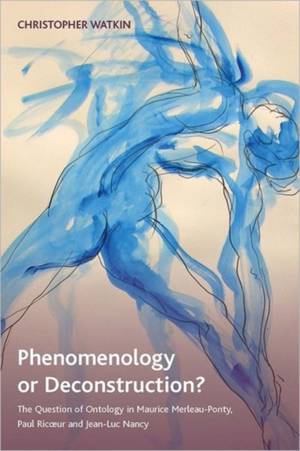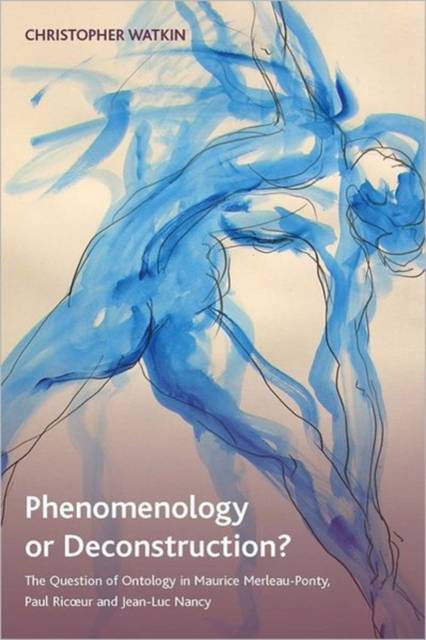
Je cadeautjes zeker op tijd in huis hebben voor de feestdagen? Kom langs in onze winkels en vind het perfecte geschenk!
- Afhalen na 1 uur in een winkel met voorraad
- Gratis thuislevering in België vanaf € 30
- Ruim aanbod met 7 miljoen producten
Je cadeautjes zeker op tijd in huis hebben voor de feestdagen? Kom langs in onze winkels en vind het perfecte geschenk!
- Afhalen na 1 uur in een winkel met voorraad
- Gratis thuislevering in België vanaf € 30
- Ruim aanbod met 7 miljoen producten
Zoeken
Phenomenology or Deconstruction?
The Question of Ontology in Maurice Merleau-Ponty, Paul Ricoeur and Jean-Luc Nancy
Christopher Watkin
Hardcover | Engels
€ 233,95
+ 467 punten
Omschrijving
Phenomenology or Deconstruction? challenges traditional understandings of the relationship between phenomenology and deconstruction through new readings of the work of Maurice Merleau-Ponty, Paul Ricoeur and Jean-Luc Nancy. A constant dialogue with Jacques Derrida's engagement with phenomenological themes provides the impetus to establishing a new understanding of 'being' and 'presence' that exposes significant blindspots inherent in traditional readings of both phenomenology and deconstruction.In reproducing neither a stock phenomenological reaction to deconstruction nor the routine deconstructive reading of phenomenology, Christopher Watkin provides a fresh assessment of the possibilities for the future of phenomenology, along with a new reading of the deconstructive legacy. Through detailed studies of the philosophy of Merleau-Ponty, Ricoeur and Nancy, he shows how a phenomenological tradition much wider and richer than Husserlian or Heideggerean thought alone can take account of Derrida's critique of ontology and yet still hold a commitment to the ontological. This new reading of being and presence fundamentally re-draws our understanding of the relation of deconstruction and phenomenology, and provides the first sustained discussion of the possibilities and problems for any future 'deconstructive phenomenology'.
Specificaties
Betrokkenen
- Auteur(s):
- Uitgeverij:
Inhoud
- Aantal bladzijden:
- 288
- Taal:
- Engels
Eigenschappen
- Productcode (EAN):
- 9780748637591
- Verschijningsdatum:
- 3/03/2009
- Uitvoering:
- Hardcover
- Formaat:
- Ongenaaid / garenloos gebonden
- Afmetingen:
- 157 mm x 234 mm
- Gewicht:
- 589 g

Alleen bij Standaard Boekhandel
+ 467 punten op je klantenkaart van Standaard Boekhandel
Beoordelingen
We publiceren alleen reviews die voldoen aan de voorwaarden voor reviews. Bekijk onze voorwaarden voor reviews.









